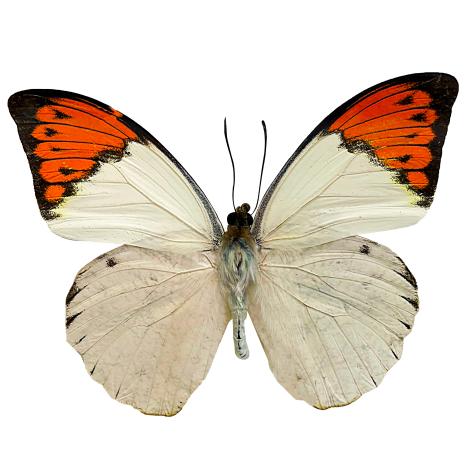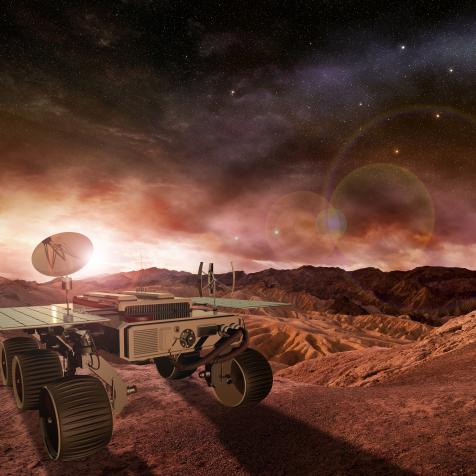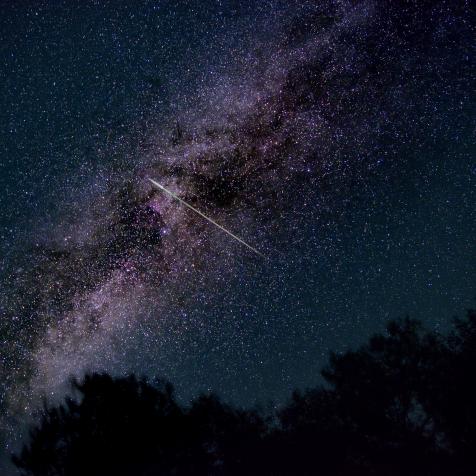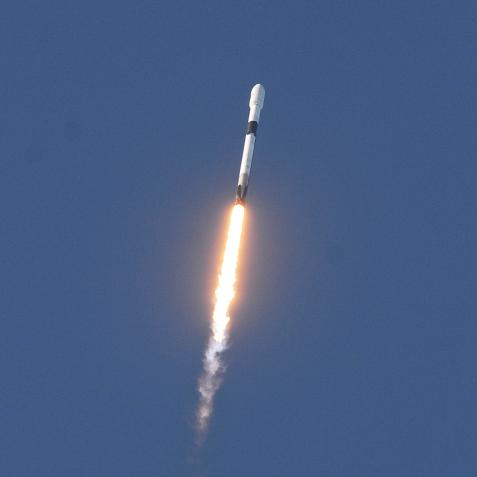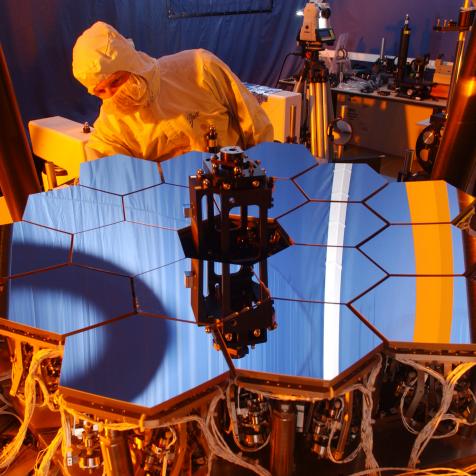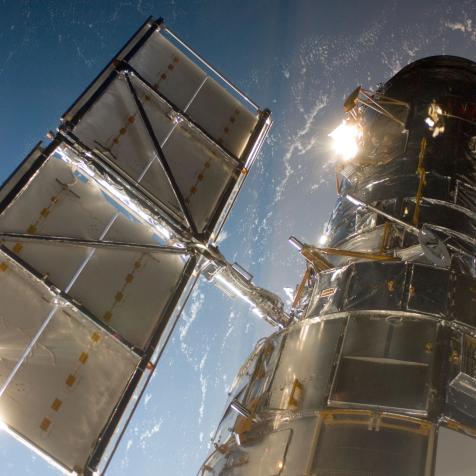
Curiosity Daily Podcast: An Interstellar Object’s Origin Revealed, Why Superstitions Evolved, and How the Sense of Smell Is More Complicated Than We Thought
Learn about why natural selection favors superstitions; why the way our noses smell is way more complicated than we thought; and where scientists think 'Oumuamua, the first interstellar object, came from.
May 19, 2020
Episode Show Notes:
How natural selection favors superstitions by Cameron Duke
- Foster, K. R., & Kokko, H. (2008). The evolution of superstitious and superstition-like behaviour. Proceedings of the Royal Society B: Biological Sciences, 276(1654), 31–37. https://doi.org/10.1098/rspb.2008.0981
- Hájek, A. (2018). Pascal’s Wager (E. N. Zalta (Ed.)). Stanford Encyclopedia of Philosophy; Metaphysics Research Lab, Stanford University. https://plato.stanford.edu/entries/https://plato.stanford.edu/entries/pascal-wager/index.htmlpascal-wager/index.html
- Johnson, D. D. P., Blumstein, D. T., Fowler, J. H., & Haselton, M. G. (2013). The evolution of error: error management, cognitive constraints, and adaptive decision-making biases. Trends in Ecology & Evolution, 28(8), 474–481. https://doi.org/10.1016/j.tree.2013.05.014
The way our noses smell is way more complicated than we thought by Cameron Duke
- Making sense of scents: 3-D videos reveal how the nose detects odor combinations. (2020, April 9). Phys.org. https://phys.org/news/2020-04-scents-d-videos-reveal-nose.html
- Xu, L., Li, W., Voleti, V., Zou, D.-J., Hillman, E. M. C., & Firestein, S. (2020). Widespread receptor-driven modulation in peripheral olfactory coding. Science, 368(6487). https://doi.org/10.1126/science.aaz5390
- Chess, A., Simon, I., Cedar, H., & Axel, R. (1994). Allelic inactivation regulates olfactory receptor gene expression. Cell, 78(5), 823–834. https://doi.org/10.1016/s0092-8674(94)90562-2
- Morrison, J. (2014). Human nose can detect 1 trillion odours. Nature. https://doi.org/10.1038/nature.2014.14904
- The Scent of a Molecule. (2017, November 17). Science History Institute. https://www.sciencehistory.org/distillations/the-scent-of-a-molecule
We might finally know the origin of the first known interstellar object 'Oumuamua by Grant Currin
- Origin of the first known interstellar object ’Oumuamua. (2020). EurekAlert! https://www.eurekalert.org/pub_releases/2020-04/caos-oot041220.php
- In Depth | Oumuamua – NASA Solar System Exploration. (2019, December 19). NASA Solar System Exploration. https://solarsystem.nasa.gov/asteroids-comets-and-meteors/comets/oumuamua/in-depth
- Davis, N. (2020, April 13). Interstellar object ‘Oumuamua believed to be ‘active asteroid.’ The Guardian; The Guardian. https://www.theguardian.com/science/2020/apr/13/interstellar-object-oumuamua-believed-to-be-active-asteroid
- PSRD: Active Asteroids. (2019). Hawaii.edu. http://www.psrd.hawaii.edu/May19/active-asteroids.html
Subscribe to Curiosity Daily to learn something new every day with Cody Gough and Ashley Hamer. You can also listen to our podcast as part of your Alexa Flash Briefing; Amazon smart speakers users, click/tap “enable” here: https://www.amazon.com/Curiosity-com-Curiosity-Daily-from/dp/B07CP17DJY
Next Up
Curiosity Daily Podcast: Space Slingshot, Ancient Modern Pants, Lifesaving Silence
Hear about a slingshot launching payloads into space, the impressively modern-looking world’s oldest pants, and how moth wings are able to absorb sound to avoid detection from bats.
Curiosity Daily Podcast: Skin Print, Testing Birth Control, Race To Bring Mars Home
You’re going to learn about efforts to print astronaut skin in space with their own blood, the mystifying side effects of birth control, and the race to bring soil samples back from Mars!
Curiosity Daily Podcast: Rice TV Screen, Satellite Warfare, Unraveled DNA
Do you want to know about a new environmentally friendly way to make TV Screens, what future space warfare might look like, and how we have finally completely unraveled the human genome?
Curiosity Daily Podcast: Big Brain Bestfriends, Mars Exploration Fleet, Brain Unpain
Discover how our brains physically reflect how social we are, a new proposal for Mars exploration vehicles, and patterns in our brain that reveal how we process pain!
A Guide to this August’s Best Astronomy Attractions
Learn more about the exciting things happening in the night sky this month! From the rings of Saturn to the most popular meteor shower of the year, August 2022 has us stargazing all month.
How Exoplanets Became the Next Big Thing in Astronomy
To date, we know of over 5,000 planets outside the solar system. And astronomers suspect that there may be *checks notes* around a trillion more in our galaxy alone. The search for exoplanets is one of the hottest topics in astronomy, with expensive telescopes and giant collaborations all searching for the holy grail of the 21st century: an Earth 2.0, a habitable world like our own.
South Korea Joins Space Race by Sending its First Spacecraft to the Moon
South Korea is launching its first lunar probe to the moon on August 4th. The Korea Pathfinder Lunar Orbiter (KPLO) or Danuri, developed by the Korea Aerospace Research Institute (KARI) is being launched to study moon carters, magnetic fields, and surface weathering.
Why Astronomers Care About Super-Old Galaxies?
A long time ago, our universe was dark.It was just 380,000 years after the big bang. Up until that age, our entire observable cosmos was less than a millionth of its present size. All the material in the universe was compressed into that tiny volume, forcing it to heat up and become a plasma. But as the universe expanded and cooled, eventually the plasma changed into a neutral gas as the first atoms formed.
What We’ve Already Learned From James Webb? (Hint: it’s a lot)
That was worth the wait. Just a quick handful of months since its historic launch on Christmas Day, the James Webb Space Telescope has flown to its observing position, unfolded its delicate instruments and ultra-sized mirror, and run through a suite of checks and alignments and calibrations. The team at NASA behind the telescopes released their first batch of images from the science runs, and besides being gorgeous, they're powerful.
How Astronomers Use a Trick of Gravity to See the Most Distant Objects in the Universe
Let’s say you’re an astronomer (work with me here) and you want to take a picture of something incredibly, deeply far away. You know, the typical business of astronomy.


































































